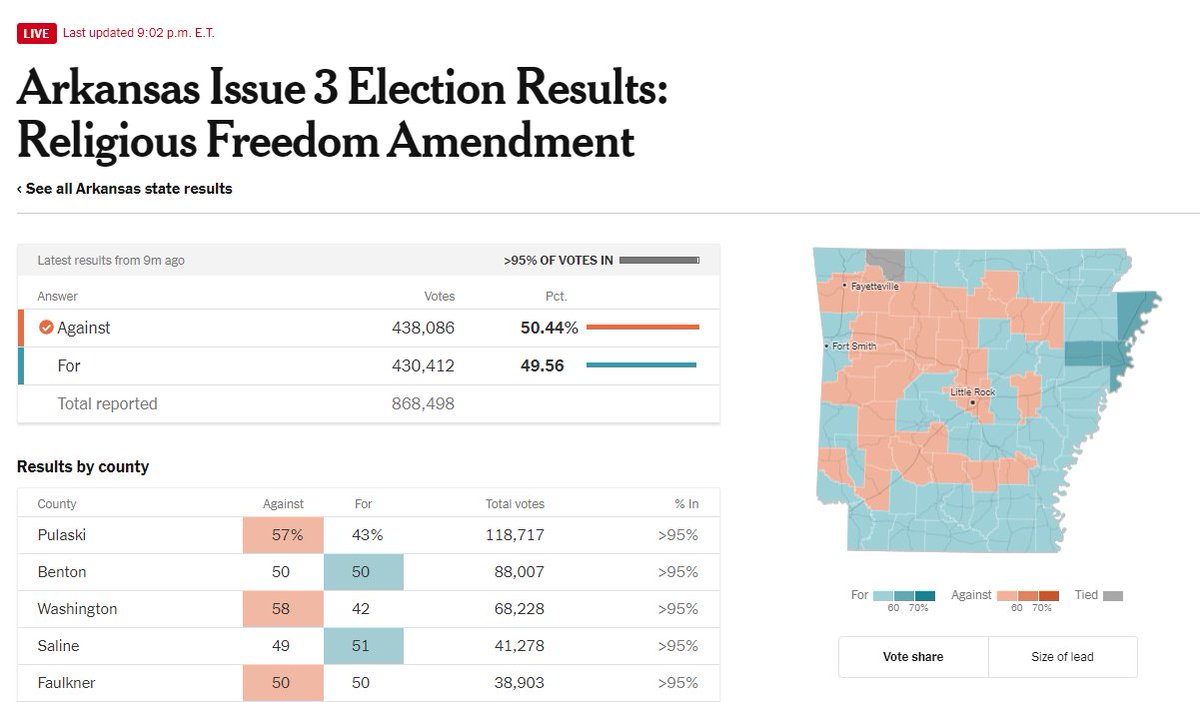
BREAKING: The New York Times (and the AP) have called it. Arkansas Issue 3, the so-called "Religious Freedom Amendment," has FAILED! This is great news for anyone who values real religious freedom, civil rights protections, and the rule of law. #Election2022 #AtheistVoter 

This dangerous attempt to create a religious opt out for literally every law on the books was dangerous and extreme, and Arkansans wisely refused to go along with failed candidate Jason Rapert's final attempt to create a Christian Nationalist theocracy in their state.
Almost 150,000 voters who pulled the lever for Sarah Huckabee Sanders refused to back this dangerous amendment. It just shows how out of step and extreme people like Jason Rapert and his ilk are that they can't even win in Arkansas.
• • •
Missing some Tweet in this thread? You can try to
force a refresh





